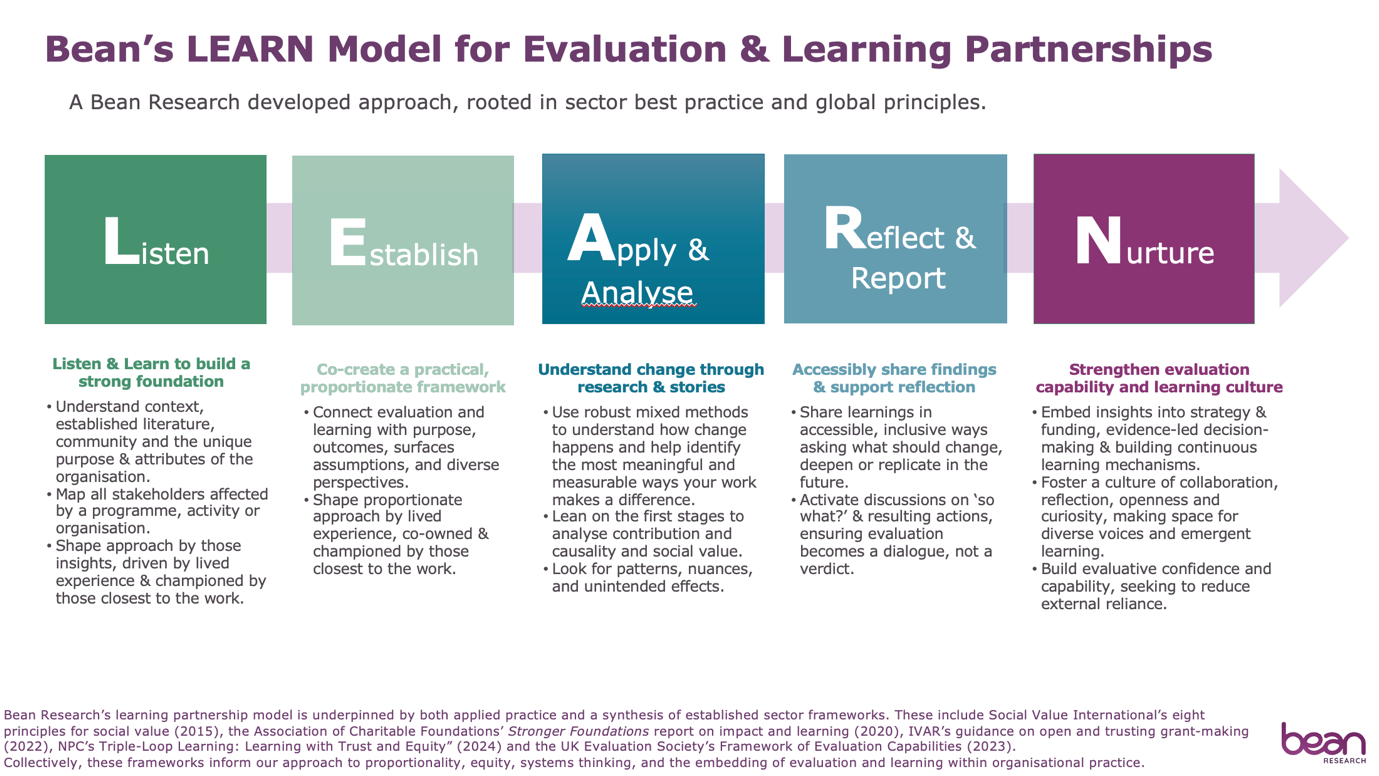At Bean Research, we often talk about evaluation as a tool not just to prove, but to improve. That idea sits at the heart of our work as evaluation and learning partners — with organisations as varied as the LTA Tennis Foundation, St, James’ Place Foundation, Jack Petchey Foundation, City & Guilds, Offploy and many others.
There is no shortage of evaluation and learning models out there, from triple-loop learning to impact maturity matrices and social value principles. But many of these are either highly conceptual or designed for specific institutional contexts. In contrast, we’ve developed a practical, research-informed approach to learning partnerships that any organisation can use to bring greater purpose, proportionality, and collaboration to their evaluation.
This model has grown not just from theory, but from over 30 years of working alongside charities, funders, and social enterprises listening, learning and adapting together. It draws on sector-wide best practice from organisations like IVAR, Social Value International, the UK Evaluation Society, and the Association of Charitable Foundations. Each of these highlights the importance of trust, voice, equity, and reflection. These are values we’ve woven throughout our own approach.
Introducing the LEARN Model: At its core is LEARN — five simple but powerful steps that guide how to approach evaluation with curiosity, equity, and action in mind:
The LEARN model can be used by funders looking to embed proportionate and inclusive evaluation across their funding programmes, by charities and delivery partners seeking to structure internal learning and reflection, and by partnerships wanting to align around shared definitions of success. It also offers a practical tool for trustees and leadership teams to connect insight with strategy, and to build a culture where learning informs real decisions.
Evaluation (and Bean as partners) should be used as a guide on the side, not a judge on the outside, helping organisations make sense of what’s happening and shape what happens next. Our approach is designed to do just that- a framework that supports learning as an active, relational and ongoing process. We’re proud to have shaped this model through long-term partnerships with some wonderful clients, not short-term projects and it reflects our commitment to being a guide on the side, not a judge on the outside.

